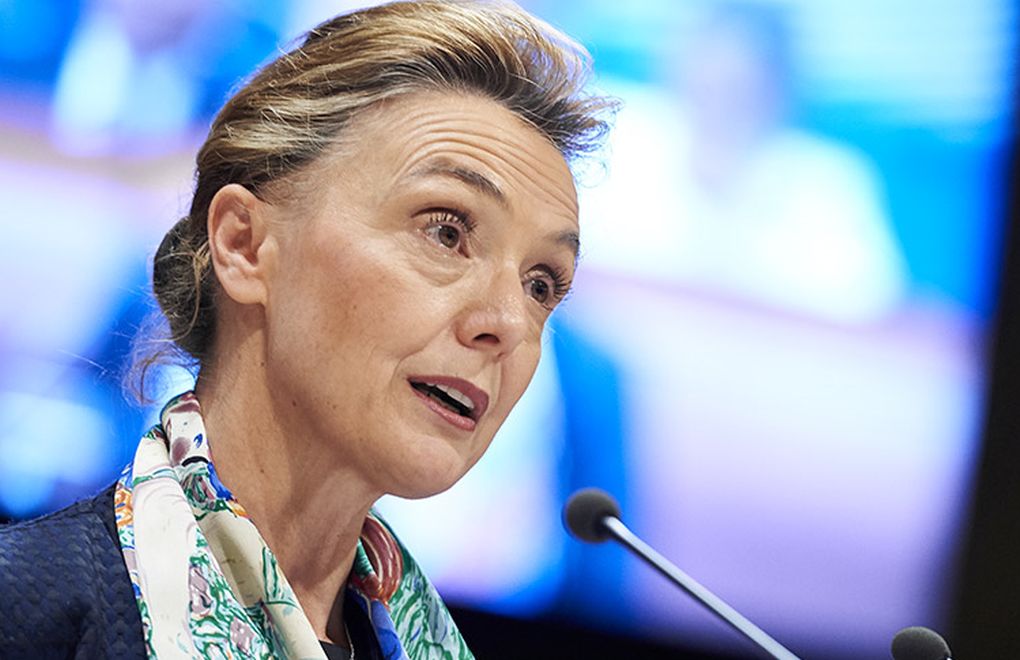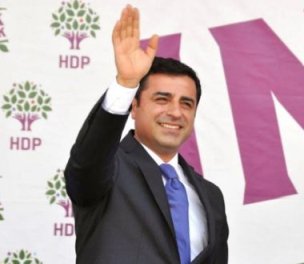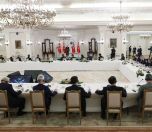Click to read the article in Turkish
Marija Pejčinović Burić, the Secretary General of the 47-country Council of Europe (CoE), has released a written statement ahead of December 10 Human Rights Day tomorrow. The Secretary General has stressed that "now, more than ever, we must stand up for human rights."
Noting that "human rights, democracy and the rule of law are under significant pressure," Pejčinović Burić has put a special emphasis on "ensuring the swift and effective implementation" of the judgements handed down by the European Court of Human Rights (ECtHR).
"When faced with difficult challenges, it can be tempting for states to consider relaxing human rights protections," the CoE Secretary General has noted, underlining that "the opposite should happen": "When times get tough is when we most need to stand up for, and abide by, the unique system of values that we have built up over the last 70 years."
Citing the pandemic, migration, climate change and societal issues such as religious intolerance, racism, discrimination and violence against women as the challenges faced by Europe, she has said:
"The European Convention on Human Rights was designed to help national authorities ensure respect for the basic human rights of ordinary people in all circumstances, not just in good times. The Convention, and the system behind it, has successfully stood up to this challenge and adapted to changing circumstances for over seven decades.
"More than 20,000 judgments from the European Court of Human Rights, and their implementation by our 47 member states, have brought many real improvements to people's lives – on a wide range of issues, including equality, non-discrimination, health and the environment – as well as benefitting our societies more broadly.
Human rights, democracy and the rule of law are under significant pressure. Now more than ever we must stay true to our values, as embodied in the human rights convention, and ensure the swift and effective implementation of judgments from the European Court.
CLICK - Erdoğan: We don't recognize EU's decisions
In a statement yesterday (December 8), Turkey's President and ruling Justice and Development Party (AKP) Chair Recep Tayyip Erdoğan made the following remarks about the rulings of the ECtHR:
"I don't have to make a comment on this. We don't recognize the European Union's decisions about Kavala, Demirtaş, this or that...
"This is so simple. We assume that 'they don't exist'. In our eyes, these are null and void. We have explained it over and over. They may understand it or not. We don't recognize the European Union decisions over the ones handed down by our judiciary. They can do what they know."
NOTE: The rulings on Selahattin Demirtaş and Osman Kavala are not given by the European Union (EU) but by the Committee of Ministers, the statutory decision-making body of the Council of Europe (CoE). The European Court of Human Rights (ECtHR) is a court within the body of the CoE. As Turkey is not a member of the EU, it does not have any obligation to abide by its decisions. However, Turkey is a founding member of the CoE and it is obligated by Article 90 of its own Constitution to abide by and execute the ECtHR rulings.
Why Turkey obliged to abide by ECtHR rulings?
The ECtHR rulings are binding. Turkey is a party to the European Convention on Human Rights (ECHR). In being a party to the ECHR, it accepts the authority of the Council of Europe and the ECtHR, pledging that it will abide by the rulings and resolutions of the administration.
These rulings are also binding as per Article 90 of Turkey's Constitution. This article says that when fundamental rights and freedoms are concerned, international conventions are deemed primary.
With Article 46 of the ECHR regarding the "bindingness and execution of rulings" passed by the Grand Chamber of the ECtHR on December 22, the rulings have been definite and binding for everyone since 5 pm that day, when the article was published on the ECtHR website.
Therefore, Turkey does not have the chance to say, "I don't execute the ECtHR rulings". As Turkey is a party to the Convention, the rulings are binding and Turkey is obligated to definitely abide by them.
Infringement proceedings against Turkey
Following its three-day meetings, the Committee of Ministers of the Council of Europe decided to initiate infringement proceedings against Turkey on the grounds of its failure to implement the ruling of rights violation and immediate release given by the European Court of Human Rights (ECtHR) for jailed businessperson and rights defender Osman Kavala, who has been behind bars in Silivri Prison in İstanbul for 1,499 days as of today (December 8).
CLICK - Gezi trial | Kavala's arrest to continue
The decision to launch the infringement proceedings was voted at the meeting of the Committee of Ministers of the Council of Europe, which is responsible for overseeing the implementation of the ECtHR rulings.
While two thirds of the votes were necessary to launch the proceedings, over 32 of the 47 members of the Council of Europe, more than the necessary number, voted in favor of the decision.
Call for Selahattin Demirtaş's release
The Committee of Ministers pronounced its interim resolution following its meeting on December 2, where it discussed Turkey's failure to implement the ECtHR ruling of "immediate release" given for Selahattin Demirtaş, the former Co-Chair of the Peoples' Democratic Party (HDP).
In its resolution, the Committee "expressed the strong hope that the Constitutional Court concludes its examination of the applicant's complaints in the shortest possible time frame and in a manner compatible with the spirit and conclusions of the Court's judgment."
The Committee also "strongly urged again the authorities, in the meantime, to assure the applicant's immediate release."
Deciding to resume examination at its 1428th meeting in March 2022 at the latest, it did not accept Turkey's objection. (AS/SD)











